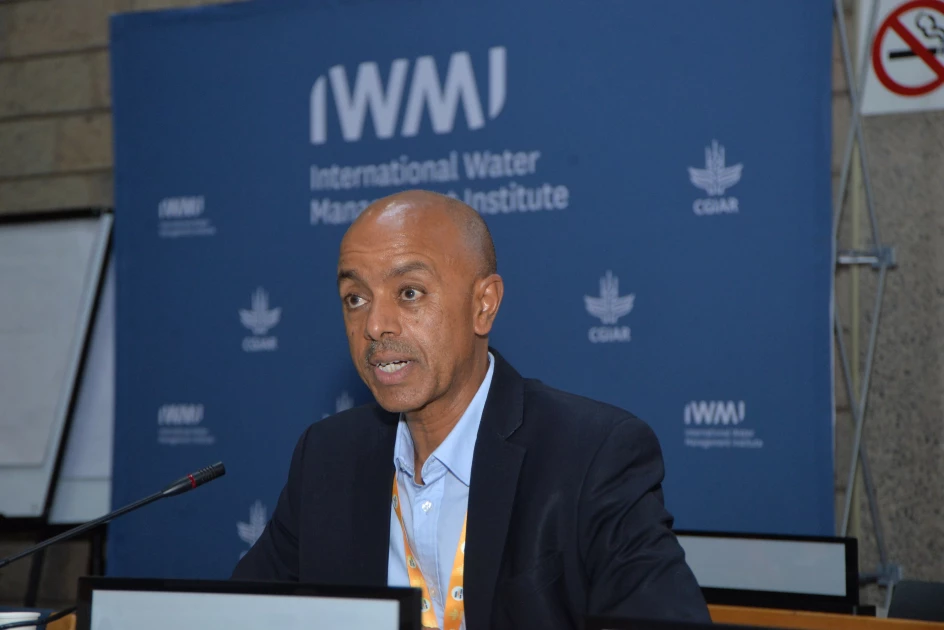IWMI unveils transformative 2024–2030 strategy for East Africa

The new strategy represents a significant leap forward in IWMI’s mission to enhance water security, support climate adaptation, and drive sustainable agriculture across East Africa.
IWMI delivers on its mission by generating research evidence, developing innovations and solutions, and scaling them up through policies, networks, and partners.
By harnessing cutting-edge research and fostering regional partnerships, IWMI aims to deliver solutions that improve livelihoods across East Africa.
IWMI Director General Mark Smith underscored the urgency of the strategy, emphasizing the need for collaborative, data-driven solutions to address water and climate challenges.
“Water is at the heart of climate resilience, food security, and economic development. Our strategy is a roadmap for research and innovation to improve how water is managed in East Africa. It marks a significant milestone in IWMI’s mission to advance water security, climate resilience, and sustainable agricultural practices across East Africa. Through this strategy, we are committed to working with partners to implement science-backed solutions to address pressing water-related challenges, improve livelihoods, and support sustainable development in Kenya and across the broader East Africa region,” Smith said.
IWMI’s Regional Representative for East Africa, Abdulkarim H. Seid, highlighted the regional priorities and how the strategy will contribute to sustainable development goals by leveraging cutting-edge research and partnerships.
“The challenges facing East Africa, as in other parts of the world, require collective action. The strategy will guide IWMI’s work in the region, ensuring that we co-design and co-develop solutions with local communities, governments, academia, the private sector, and other key partners to build resilient and innovative water systems for a sustainable future,” Seid explained.
Held during CGIAR Science Week, IWMI’s strategy launch event convened key stakeholders—including government officials, research institutions, development partners, the private sector, and NGO representatives—to explore bold, innovative approaches and solutions for sustainable water management in the region.
The event featured expert panel discussions comprising government officials, farmer organizations, research institutions, development partners, and private sector representatives.
In addition to insights into how IWMI’s strategy aligns with national and regional development plans and the means of engaging in its implementation, the interactive sessions and networking opportunities offered a platform for knowledge exchange and collaboration.
Want to send us a story? SMS to 25170 or WhatsApp 0743570000 or Submit on Citizen Digital or email wananchi@royalmedia.co.ke
Comments
No comments yet.



Leave a Comment